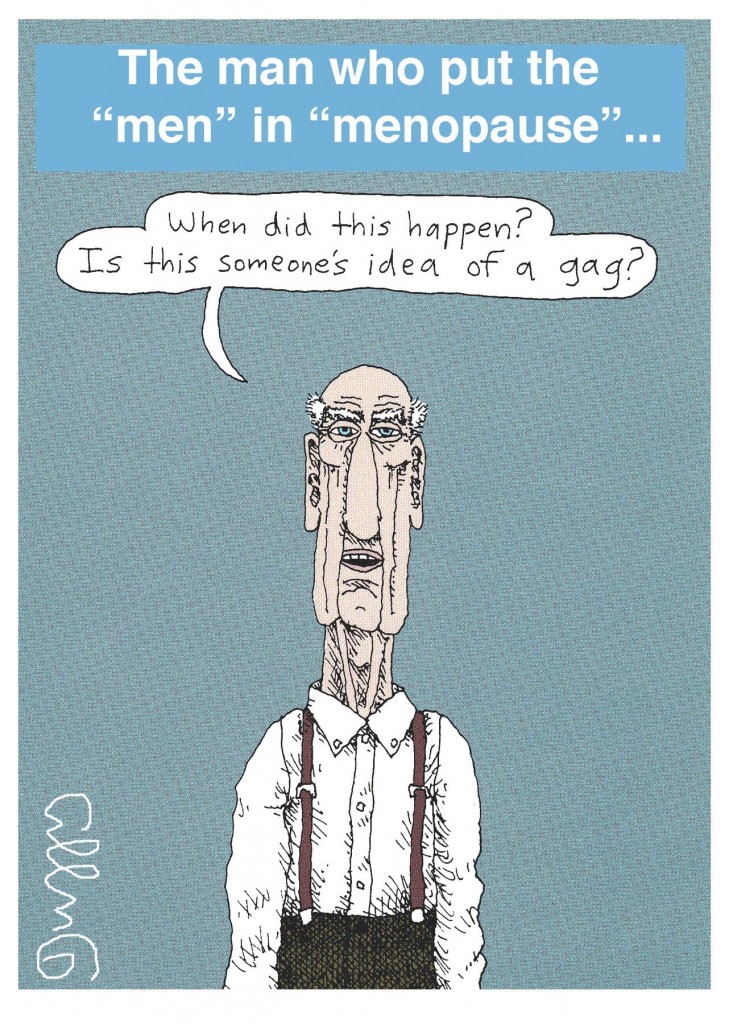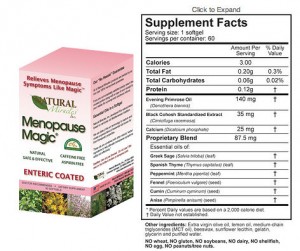Alternative medicine and the ‘pause: what your gynecologist is thinking
Women rank among the highest consumers of complementary and alternative medicine for their healthcare, and according to the National Center for Complementary and Alternative Medicine, age matters. In fact, the largest percentage of adults reporting that they use alternative medicine strategies are 50 to 59 years old, and as many as 42% discuss their use with their doctors. However, what does your gynecologist think about complementary and alternative medicine use? Is she or he supportive and what modalities tend to rank highest in terms of recommendations or endorsements? Moreover, how do gynecologists differ in their opinions?
In the U.S., most ob/gyns appear to believe that convention medicine practices for reproductive issues might benefit by the integration of complementary strategies. However, most of the positive beliefs focus on biofeedback, chiropractic, acupuncture or meditation. Conversely, the doctors report that they would not recommend dietary changes or Traditional Chinese Medicine and a majority were not strong supporters of herbal medicine. This is in direct conflict with German gynecologists. But why should we care about the Germans and what they think!!!?
To digress, I don’t know how many of you are familiar with the Commission E Monographs but, they comprise the world’s leading scientific summaries on the use of medicinal herbs in health and disease. In the late 1970s, the German Ministry of Health established Commission E, a panel of experts charged with evaluating the safety and efficacy of the herbs available in pharmacies for general use. In all, the group published 380 herbal monographs that are considered “the most accurate information available in the entire world on the safety and efficacy of herbs and phytomedicines.” Hence, the Germans definitely have a leg up when it comes to alternative medicine, at least when it comes to the use of herbal alternatives.
So, let’s take a look at a similar survey experience newly published in Complementary Therapies in Medicine, in which over 2,500 respondents indicated a familiarity with the use of alternative medicine specifically for menopausal symptoms. Almost all of the gynecologists had some experience with black cohosh, chaste tree berry and St. John’s Wort and believed them to be effective. And the modality that they felt was most effective? Lifestyle changes and alteration (think: change in dietary habits, physical activity, reduction of stress, etc). The least effective strategies, at least in the eyes of German doctors, were yoga, acupuncture and homeopathy.
The researchers point out that the viewpoint of German doctors is important because these practitioners play an important and consistent role counseling women who complain of menopausal symptoms. The same is true for their U.S. counterparts. And yet, despite the wealth of data in the Commission E monographs, many doctors still continue to question effectiveness and scientific evidence supporting the use of alternatives.
Will this make a difference with regard to the choices that women are making? Probably not, because as I’ve been writing for years, one size does not fit all, especially when it comes to weighing the benefits versus the risks of hormone replacement.
The next time you have your annual with your gynecologist, find out what she or he thinks of complementary and alternative and strategies and most of all, ask why. What she or he is thinking might not be aligned with what you find works best for you.
Read More
Newsflash: MsFLASH needs participants
I know, it’s Wednesday and you are probably thinking that I’m taking a mick; who else would be Ms. FLASH than me, right?! However, this is a bonefide ask and post. MsFLASH –Menopause Strategies: Finding Lasting Answers for Symptoms and Health (MSFLASH)– is a network of studies evaluating potentially promising treatments for common menopausal symptoms. Started by the National Institutes of Health, MsFLASH comprises five research centers in Boston, Oakland, Philadelphia, Seattle and Indianapolis who are exploring various interventions for hot flashes, night sweats, mood disorders and sexual issues. Mind you, some of these studies are looking at pharmaceuticals so they might not be appealing. However, if you are a woman between the ages of 40 and 62, going through the pause and experiencing frequent symptoms, you may wish to consider participating.
My goal is and has always been to further our understanding of the challenges of menopause and exploring viable strategies to address them. Without research, this is impossible and leaves only one avenue: hormone replacement. And we all know what a slippery slope that has proven to be.
MsFLASH may ultimately reveal nothing of value. Or, it may be five years times $4.4 million well spent.
Check it out. Who knows? You may be part of history in the making!
Read MoreWho put the men in menopause? Men!
Who put the ‘men’ in menopause?
Would you believe men?!!!
You must think I am bordering on insanity. But new evolutionary research (published in the June issue of PLOS Computational Biology) posits that cause of menopause is men. You read that correctly; men.
Various explanations have been proposed to explain why menopause, occurs, e.g. the grandmother theory, which assumes that as women enter their post-reproductive lives, they are better able to care for their offspring’s children or the evolutionary tradeoff hypothesis, which suggests that menopause is a tradeoff between future production of females and enhanced offspring survival.But what about the concept of mating and ‘mate choice?’
Mind you, I am venturing into geeky science territory here but briefly, researchers created a computer model and simulation and found the following:
A lack of reproduction has led to menopause.
That is, over time, human males started to display a preference for younger women in selecting their mates and in turn, “stacked the Dawinian deck” against continued reproductive abilities in older women. In other words, natural selection; only this time, it’s gender over nature plus nature over nature. The researchers say that their model not only shows that men had a shift towards preferring younger females, but that certain female-specific mutations led to detrimental effects on female fertility – effects such as an increase in certain hormones and the cessation of ovulation altogether.
The researchers say that infertility in women has not evolved but rather “over time, competition among men of all ages for younger mates has left older females with much less chance of reproducing,” adding that “natural selection is only concerned with the survival of the species through individual fitness so they protect fertility in women while they are most likely to reproduce.” The rub here is not only does fertility cease to exist but women are left with a host of health problems as a result. Yikes!
Interestingly, the lead investigator, Rama Singh, points out that if women had historically been the ones to select younger mates, the situation would have been reversed, with men losing fertility.
Besides the obvious conclusion, that is, men put the men in menopause, what else can we draw from this hypothesis. For one, if male selection drove the ‘pause, it isn’t inconceivable that the paradigm could ultimately be reversed. But that’s science fiction for another planet and another time.
On a side note? The term male menopause is a bit rhetorical, don’t you think? That’s a topic for another day.
Read More
Spring, Summer, Winter, Fall. Who’s the luckiest of all?
[‘Painting: Quattro Stagioni (Four Seasons) – CY Twombly, 1993-94.]
Menopause is seasonal?!!!
I’m as surprised as you. And as a May baby, I have a lot to think about.
According to research published several years ago in Menopause journal, there may actually be a connection between season of birth and certain symptoms that occur during menopause.
Now, before you think I’ve truly lost my marbles, let me share that data have previously connected season of birth to fetal growth rates, human life span, fertility, and even timing of menopause. The season in which we’re born have also been connected to the prevalence of mental health conditions, like schizophrenia, and bipolar disorder. And, according to Italian researchers (who performed analyses on 2,451 women attending menopause clinics) scientific scores taken at the time they sought advice actually connected birth season to their symptoms.
The goal of the scale was to measure factors like vasomotor symptoms (flashes, night sweats), psychological conditions (anxiety, depression) and bodily complaints (such as sleep issues or joint pain). Just to be sure that other factors were not influencing the results, factors, for example, that can influence symptoms such as smoking, number of years since menopause and BMI, they made additional scientific adjustments. The results?
If you are an Autumn baby, you may be in luck! Women born during the Fall months were found to be less likely to have psychological issues and fewer bodily complaints. Born in Spring? Not so lucky! In fact, converse to their Fall peers, women born in Spring had the highest scores for psychological and bodily complaints. If you were born during Summer or Winter, you may just win the balance lottery; it appears that these women just fell into the middle range of scores for these complaints. That’s the more general information. But how about actual month? The lowest overall scores were found among women born in November and the highest, among women born in June. For those of you who are astrologically inclined, the Scorpio/Sags are less likely to have psychological complaints than their Taurus/Gemini friends (i.e. November and May). November actually won the trifecta, as these women, again, had the lowest bodily complaint scores while March babies had the highest.
Mind you, the results are not the gospel; the researchers were evaluating data that had already been collected on a group of women seeking advice for symptoms. So there may have been bias to begin with. Still, it’s pretty interesting. I am a firm believer that humans are influenced and affected by the tides and the lunar cycles. Why not the seasons too?
But then again, as a May baby, I may actually be completely out of my mind! What about you? When were you born and how are your symptoms?
Read More
Wednesday Bubble: The Magic Menopause Ball
 Can you accurately pinpoint the timing of your final menstrual period? Lord, I finally hope so because if you are anything like me, 50+ and over this bleeding thing, the ability to read into the magic menopause ball sounds like heaven. However, more importantly, it may have significant benefits for women’s health overall. For example, knowing when you will enter menopause provides you with the ability to address bone loss and other risks now (the rate of bone loss greatly accelerates to roughly 2.6% in the year prior through two years after menopause). And there’s no time like the present to start bolstering your defenses against the health-related ravages of aging.
Can you accurately pinpoint the timing of your final menstrual period? Lord, I finally hope so because if you are anything like me, 50+ and over this bleeding thing, the ability to read into the magic menopause ball sounds like heaven. However, more importantly, it may have significant benefits for women’s health overall. For example, knowing when you will enter menopause provides you with the ability to address bone loss and other risks now (the rate of bone loss greatly accelerates to roughly 2.6% in the year prior through two years after menopause). And there’s no time like the present to start bolstering your defenses against the health-related ravages of aging.
This post comes with a warning: it’s a bit geeky science-y. Some topics are harder than others to write about. However, I hope that you’ll bear with me and read on; it’s important.
This is not the first time that the future is being explored; you may recall another test that measures the antimullerian hormone, an ovarian marker that relates to the number of immature follicles a woman has (as the marker declines, so do the number of eggs a woman houses, and the closer to menopause she is). Another way to gauge the start of menopause is to monitor bleeding patterns. Not only is this onerous, but, data suggest that more than 60% of women in early perimenopause become postmenopausal with no apparent signs.
A new approach to pinpoint the timing of menopause involves a calculation of changing levels of estradiol (the most important form of estrogen in the body) and follicle stimulating hormone (FSH – the hormone produced by the pituitary gland that stimulates the ovaries to produce eggs). The closer a woman is to menopause, the higher the FSH levels and the lower the estrogen levels. To determine if this test is valid, researchers developed a model based on data collected from 574 women in the ongoing Study of Women’s Health Across the Nation (SWAN). These women were all between the ages of 42 and 53, had an intact uterus and at least one ovary and were not taking hormones. They were ethnically diverse (Caucasian, African-American and Asian) and had given blood samples over a ten year period.
The findings? After adjusting for factors that might influence menopause, including age, smoking and weight, they found that measuring FSH and estradiol could accurately pinpoint three major timepoints: roughly two years and one year prior to the final menstrual period and the final menstrual period. Moreover, the ability of the test to predict the final period increased as women moved closer to the goal.
Now, scientists use variables to gauge how well a test can predict the number of people with a condition (sensitivity) as well as how well a test can identify those people without the condition (specificity). The new model was shown to be able to accurately identify 89% of women who reached their final menstrual period, which is excellent.
Scientific mumbo jumbo aside, the upshot is that it’s likely that we’ll be able to predict the date of our final menstrual with great accuracy in the near future. Better than an 8-ball. The answer is ‘Yes.’
[This study appears in the April 2013 issue of the Journal of Clinical Endocrinology and Metabolism.]
Read MoreWednesday Bubble: Do you believe in magic?
If you believe in magic, come along with me…
-The Lovin Spoonful, 1965.
A lot has changed since the Lovin Spoonful released their Billboard Hot 100 hit ‘Do you believe in magic.’ And a lot has not changed. Just take a look around and you may see a 20 something year old hipster walking down the street in a fur vest, handlebar ‘stache and some rockin’ bottom bells, suede fringed bag, floppy ass hat or hotter than hot pants. And there are still miracles to be found in little white pills. Although today’s ‘little helper’ comes in the form of Menopause Magic.
Indeed, this ‘one size fits all’ tablet will cure all that ails, “relieve menopause symptoms just like magic!” Manufactured by Natural Miracles, Menopause Magic contains a natural blend of oils and herbs to relieve hot flashes, night sweats, backache, joint discomfort, low libido, vaginal dryness, forgetfulness, moodiness and abnormal menstrual periods. OMG! It MUST be magic! And, they even have laboratory studies to prove effectiveness!
Mind you, each pill contains black cohosh,which may help with those flashes, depending on the dosage and manufacturing practices. However, I have not seen much information on spanish thyme, greek sage or fennel or extra-virgin olive oil and menopause (truth be told, it has me thinking about my next meal!) But I digress.
Listen up ladies: there is no magic in menopause relief. It takes research, communication with a licensed, well-versed health practitioner and trial and error. Save your hard earned dollars on something other than these particular little white pills.
Sending love. In Spoonfuls.
Read More











